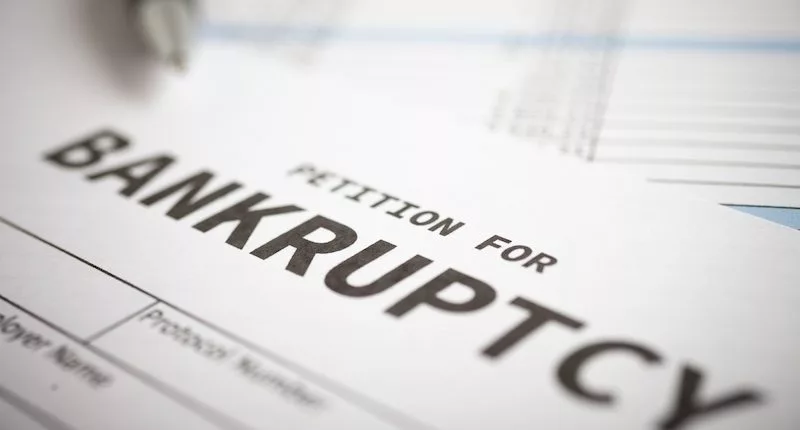California Bankruptcy Exemptions: An Overview
Filing for bankruptcy is indeed stressful and can become a complicated process. But as part of following the necessary actions, it’s always helpful to fully understand the California bankruptcy exemptions.
Read on here.
Introduction
Nobody wants to file bankruptcy. For one reason or another, bankruptcy has always had a stigma attached to it – something that no one wants to have hanging over their head. But, the truth is that bankruptcy is often the only option people are faced with when burdened with financial struggles. It is important to note, too, that those struggles are not always the result of personal failure, but of circumstances outside of one’s control.
During bankruptcy proceedings, it feels like there is a public display of all one’s assets, expenses, and so forth. The entire process is not the most comfortable thing in the world, but it can lead to a huge weight being lifted off the shoulders. And, well, that always feels good.
One of the most common questions bankruptcy lawyers receive from those inquiring about the process is what property will I be able to keep? Can I keep my home? My car? My wedding ring? While the answers may vary, we are going to take a look at the California bankruptcy exemptions.
Two Types of State Exemptions
When you file for bankruptcy, you will either use Chapter 7 or Chapter 13. Your bankruptcy attorney can get into the details of each – and review your personal circumstances – to determine the best route for you. As a general overview for this article, please note:
Chapter 7 allows the trustee to sell any nonexempt property and then use the funds collected to pay toward your unsecured debt.
Chapter 13 allows you to keep your nonexempt property, but you have to pay its value to the creditors. A payment plan lasting three to five years is established.
Unlike many other states in our country, California requires you to use state guidelines for exemptions but allows the filer to choose between two different groups of exemptions – System 1 (704) or System 2 (703).
Exemption Issues
Certain issues arise when it comes to exempting property. The most devastating issue? Losing your property. If you want to avoid finding yourself in this situation, be diligent in your collection of exemptions. Of course, having an attorney on your side as you maneuver through the world of bankruptcy can give you a sense of security.
Sometimes, it is a simple mistake on the part of the filer. A court-appointed trustee will point this out to you in an informal manner and work with you to get it resolved. However, in double-checking your exemptions, if the trustee feels you are trying to be sneaky or that you do not have the right to claim a particular piece of property, then an objection will be filed with the court. The result will rest with the judge’s decision.
System 1 (704) California Bankruptcy Exemption
Choosing this system of exemptions will get you the following:
Homestead. The homestead exemption protects the equity you have in your current residence. This must be the property in which you reside at the time the bankruptcy case is filed, regardless of the type of residence. The full equity will not be exempt, but rather:
- $75,000 if single and not disabled.
- $100,000 if more than one person has an interest in the property.
- $175,000 if 65 years of age or older, mentally disabled, or if creditors are trying to force the sale of the home (and you are either 55+, single, with an annual income of less than $25,000 OR you are 55+, married, with an annual household income of less than $35,000).
Motor Vehicle. Motor vehicle exemptions offer protection for your automobile, such as a car, truck, motorcycle, etc. This exemption amount is $3,325.00.
Wages. The law allows for 75% of wages earned within 30 days before filing bankruptcy to be exempt. And, for public employees with vacation credits, there are some exemptions allow for those receiving installment payments.
Personal property. This category allows for exempting things, such as:
- Household items
- Personal effects
- Materials to repair your homestead
- Jewelry
- Heirlooms
- Artwork
- Health aids
- Cemetery and burial plot
- Social security bank deposits
Retirement and Pensions. You will find that certain retirement funds, such as IRAs, Roth IRAs, private retirement plans, 401ks, profit sharing, and so forth should be exempt. It is best to speak to an attorney to determine the details.
Insurance. Certain insurance policies, such as life insurance, disability or health insurance, homeowner’s insurance, and others may be exempt up to a certain amount.
Keep in mind that these are just a few of the most popular exemptions. There are other types of exemptions for things such as tools of the trade, public assistance, and more. The more you review this information with your attorney, the easier it will be to make sure you don’t miss any exemptions or find yourself in front of a questioning trustee.
System 2 (703) California Bankruptcy Exemption
Most bankruptcy filers generally opt for System 1 exemptions. However, these are also available:
Homestead. The homestead exemption under this system allows for $29,275 for real or personal property currently used as a residence.
Motor vehicle. Motor vehicles offer up to $5,850 in equity in motor vehicles of all types.
Personal property. This property includes burial plots, clothing, household goods, appliances, furnishings, instruments, artwork, jewelry, health aids, etc.
Retirement. Just as System 1 above, system 2 exemptions also allow for retirement accounts, including 401k, IRA, Roth IRAs, and more.
Insurance. Insurance including life insurance policies, disability benefits, and such are also included in the exemptions.
This system also has a wildcard exemption worth $1,550 in addition to any unused amount of homestead in any property or burial amount.
Conclusion
Filing bankruptcy is never something anything looks forward to. But, getting it right is crucial – especially when it comes to the exemptions. Before you take that leap, be sure to familiarize yourself with the exemptions available to you – after all, your home and your property are valuable to you.
And remember – always hire a bankruptcy attorney to walk through the process with you. It is the smoothest way to get through it.
Read More:
Are you in search for a certified attorney to represent you?
Let us help you find one today!


